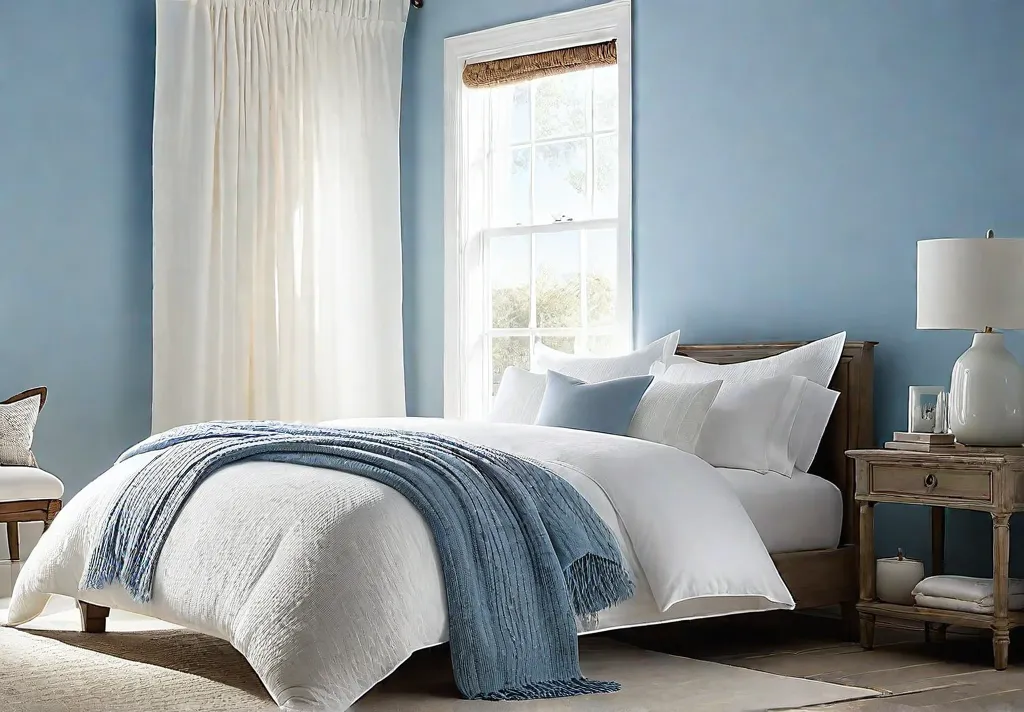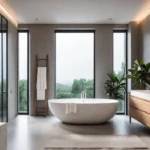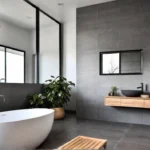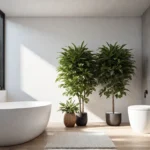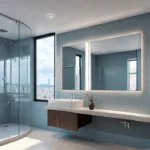Are you constantly tossing and turning at night, struggling to get the restful sleep you so desperately need? As a busy mom, I know how precious those hours of rejuvenation are – and how elusive they can feel some nights. But what if I told you that with a few simple tweaks to your bedroom’s design, you could transform it into a serene sleep sanctuary?
From harnessing the power of natural light to creating a calming color palette and minimizing distractions, I’m here to share my expert tips for optimizing your space for better sleep. Because, at the end of the day, a good night’s rest isn’t just a luxury—it’s essential for your overall well-being and ability to tackle all those mom duties with energy and focus. So cozy up, and let’s design a bedroom that promotes deep, restorative slumber.
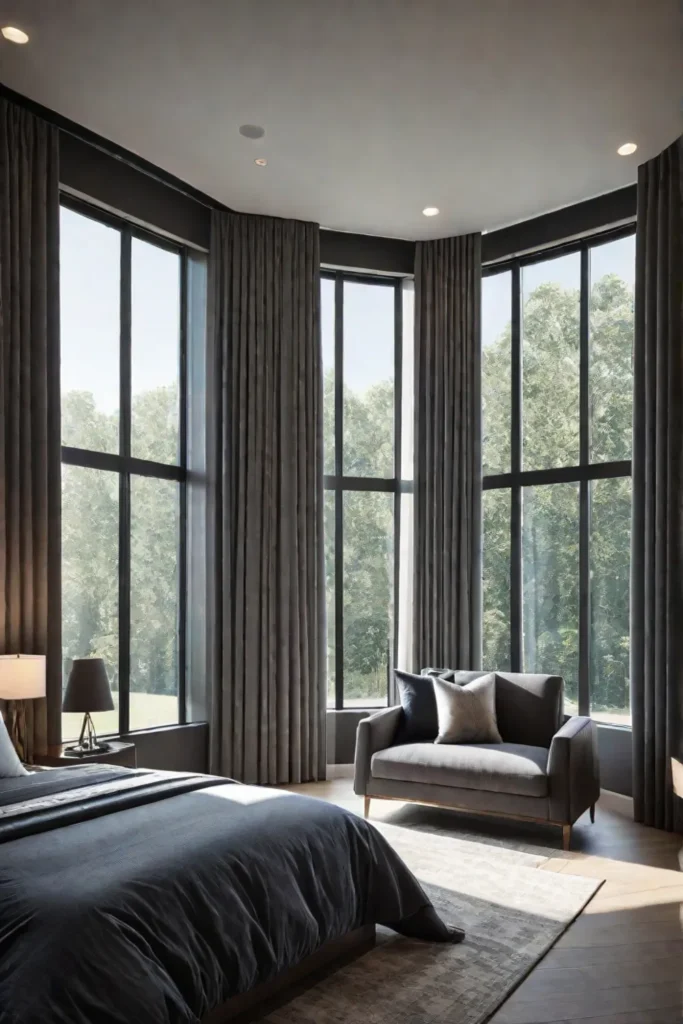
Harnessing Natural Light for Better Sleep
Did you know our bodies are naturally wired to rise with the sun and wind down as darkness falls? As a certified home decor expert, I can assure you that harnessing natural light is a simple yet powerful way to promote a restful night’s slumber.
Maximizing Morning Light
When the sun’s rays stream through your windows in the morning, they act as a natural wake-up call for your body. This exposure to sunlight suppresses the production of melatonin, the sleep-regulating hormone, and helps you feel more alert and energized. To make the most of this natural process, consider using sheer curtains or blinds that gently filter sunlight into your bedroom in the morning hours.
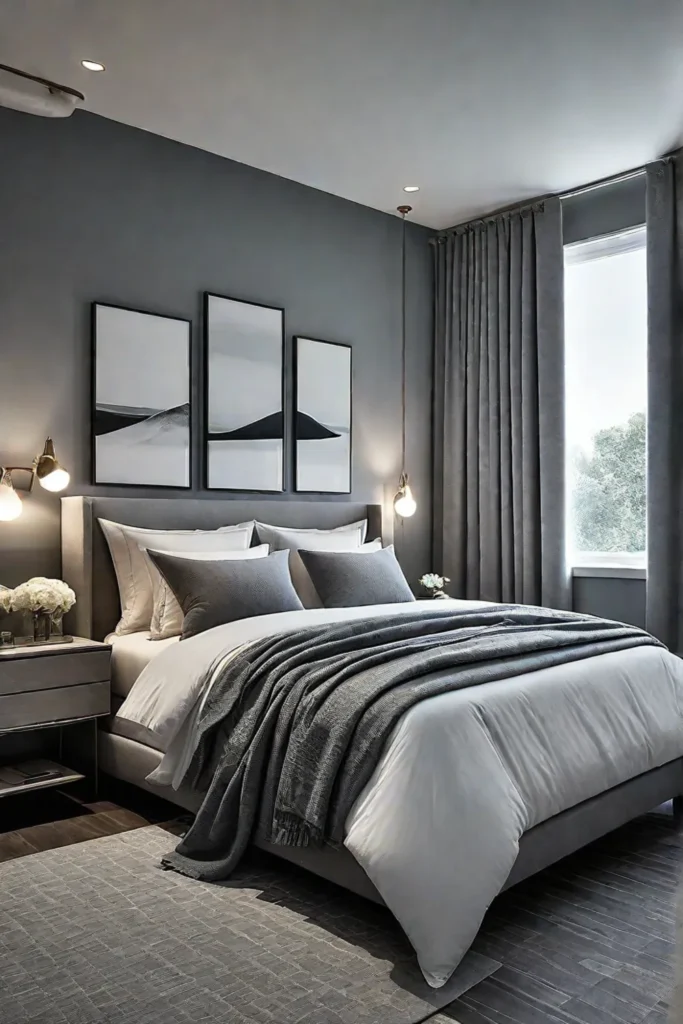
Controlling Light Exposure in the Evening
As the day winds down, our brains start producing melatonin in response to darkness, signaling our bodies to prepare for sleep. To support this natural rhythm, minimizing light exposure in the evening is essential. Install blackout curtains or blinds to block unwanted light from streetlamps or neighboring homes. If you can’t control the light sources, consider using a comfortable sleep mask to create a dark environment conducive to quality rest.
Aligning with Nature’s Rhythms
Aim to expose yourself to natural light in the morning and limit light exposure in the evening for optimal sleep. This alignment with nature’s light patterns can help regulate your circadian rhythm, making it easier to fall asleep at night and wake up refreshed in the morning.
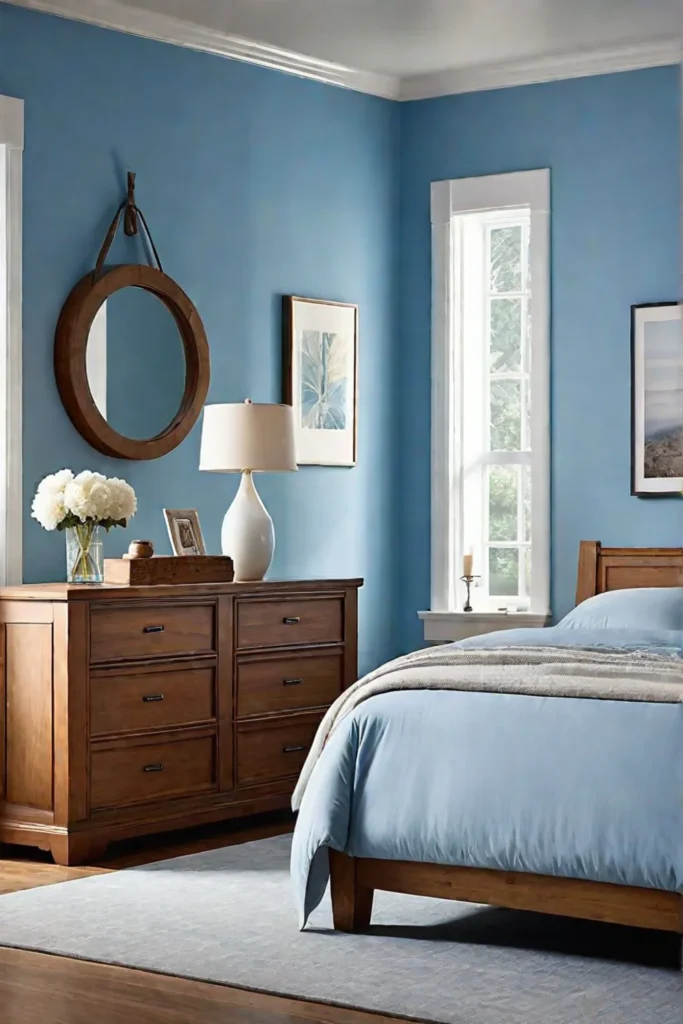
Creating a relaxing atmosphere with calming colors is another crucial element in designing a bedroom that promotes better sleep. In the next section, we will explore how color choices can impact sleep quality.
Creating a Relaxing Atmosphere with Calming Colors
As a home decor enthusiast, I can’t emphasize enough the power of color in setting the mood for a space. Regarding the bedroom, we want a serene and calming vibe to promote better sleep. After all, who can unwind in an energetic or chaotic room?
Choosing the Right Color Palette
The colors we surround ourselves with can greatly influence our emotional and energy levels. Cool hues like blue and green are often associated with calmness, tranquility, and peace. Blue is frequently used in bedrooms because it evokes serenity and relaxation.

On the other hand, warm colors like reds and oranges tend to be more stimulating and energizing, which is the opposite of what we want in a sleep sanctuary. I recommend sticking to a soft, muted palette of blues, greens, or neutrals like warm grays or taupes.
Incorporating Color Through Different Elements
Once you’ve settled on your calming color scheme, it’s time to bring it into the space. The walls are a great place to start, whether for a soothing blue or a gentle green. But don’t stop there! Carry the color to your bedding, curtains, and accessories like throw pillows or artwork.
Remember, you don’t have to go overboard with color. Sometimes, less is more. A neutral backdrop with pops of color can be just as effective in creating a relaxing atmosphere. And don’t forget to consider the undertones of your colors – cool undertones tend to be more calming, while warmer undertones can feel more energizing.

Balancing Color and Texture
While color plays a significant role in setting the mood, texture is another important factor. Soft, plush fabrics like cozy blankets or velvet pillows can add a luxurious, inviting feel to the space. Natural materials like linen or cotton can also contribute to a sense of calm and comfort.
So, how do different colors impact sleep quality? Well, it’s all about creating a serene environment conducive to rest. You can transform your bedroom into a true oasis of relaxation by carefully curating a calming color palette and incorporating soothing textures.

Remember, the key takeaway is to opt for a color scheme that promotes tranquility and restfulness. With the right hues and thoughtful touches, you’ll be well on your way to designing a bedroom that invites you to unwind and recharge.
Doesn’t a good night’s sleep sound divine? But wait, there’s more! Next, we’ll explore room-darkening solutions to help you achieve optimal sleep. After all, a calming color palette is just the beginning…
Room Darkening Solutions for Optimal Sleep
As an expert in home decor, let me tell you that proper darkness is crucial for a good night’s sleep. Even the smallest amounts of light can disrupt your body’s natural sleep-wake cycle and melatonin production. Luckily, some fantastic room darkening solutions can transform your bedroom into a cozy, sleep-friendly oasis.

Blackout Curtains and Blinds
Investing in high-quality blackout curtains or blinds is my top recommendation for blocking unwanted light. These are designed to eliminate any external light from entering the room, creating the perfect dark environment for sleep. Once you experience the blissful darkness these provide, you’ll never want to return to regular curtains again.
Alternative Light Blocking Options
If blackout curtains or blinds aren’t an option, other ways exist to achieve a dark sleeping space. Consider using a sleep mask to block out any remaining light sources or cover up electronic devices with LED lights. You can even use temporary light-blocking solutions like aluminum foil or cardboard to cover windows until you can install more permanent solutions.
Controlling Internal Light Sources
Remember internal light sources as well! Turn off any overhead lights, lamps, or electronics that emit light before bedtime. You can also use dimmer switches or smart lighting to gradually reduce the light levels as you wind down for the night.

Creating a dark, peaceful environment is one of the most important steps for promoting better sleep. With the right room-darkening solutions, you’ll be on your way to a more restful night’s sleep.
Regarding restful sleep, let’s discuss choosing the right bedding for optimal comfort.
Choosing Comfortable Bedding for Optimal Comfort
Did you know that the average person spends about one-third of their life in bed? That’s a staggering amount of time, highlighting how crucial comfortable bedding is for our overall well-being and quality of sleep.

Mattress Selection
As a home decor enthusiast, I can’t emphasize the importance of selecting the right mattress. It’s not just about aesthetics; a mattress that provides the perfect balance of support and comfort can make all the difference in how rested you feel in the morning. Take the time to try out different mattress types and firmness levels to find the one that best suits your personal preferences and sleeping style.
Pillows and Bedding Materials
Pillows are another essential component of a comfortable sleep experience. Choose pillows that complement your sleeping position, whether you’re a side, back, or stomach sleeper. And when it comes to bedding materials, opt for natural, breathable options like cotton, linen, or bamboo. These fabrics feel luxurious against your skin and promote better air circulation, helping you stay cool and comfortable throughout the night.
Bedding Material and Sleep Quality
The materials you choose for your bedding can significantly impact your sleep quality. Natural fibers like cotton and linen are soft and cozy and allow your skin to breathe, preventing overheating and discomfort. Synthetic materials, on the other hand, can trap heat and moisture, leading to restless nights and disrupted sleep patterns.

Investing in high-quality, comfortable bedding is an absolute must in pursuit of better sleep. Trust me; your well-rested self will thank you in the morning!
Speaking of mornings, let’s transition to the next section on minimizing distractions in the bedroom. After all, a peaceful sleep environment is just as crucial as the bedding itself.
Minimizing Distractions in the Bedroom
Can you sleep well when your room is cluttered and your phone is buzzing? Probably not! A calm, organized space is essential for quality shut-eye.

Decluttering and Organizing
First things first, let’s tackle that clutter. Having too much stuff around can feel overwhelming and make relaxing hard. Take some time to sort through your belongings and create a minimalist, serene environment. Invest in some stylish storage solutions to keep things neat.
Creating a Tech-Free Zone
Those pesky electronic devices are major sleep saboteurs. The blue light they emit can suppress your body’s production of the melatonin hormone, making it harder to fall and stay asleep. My advice? Banish phones, laptops, and TVs from the bedroom. Use an old-fashioned alarm clock instead of relying on your smartphone.
The Impacts of Technology on Sleep
Scrolling through social media or watching late-night TV may seem harmless, but these activities can seriously disrupt your sleep cycles. The constant stimulation and blue light exposure trick your brain into thinking it’s daytime, making it nearly impossible to wind down.

The key takeaway? Minimize distractions in the bedroom to create a peaceful, rejuvenating oasis. With a decluttered space and tech-free zone, you’ll sleep like a baby in no time!
What’s the secret to designing a bedroom that promotes deep, restorative sleep? Find out in the next section!
Final Thoughts
There you have it, my tried-and-true secrets for designing a bedroom that promotes quality sleep. From aligning with nature’s rhythms to choosing comfortable bedding and minimizing distractions, these tips will have you drifting to dreamland in no time.

Let’s be honest: as moms, we need all the energy to keep up with our busy lives. And what better way to recharge than by investing in a space that allows us to unwind and wake up feeling refreshed and rejuvenated?
So go ahead, implement these bedroom design hacks, and get ready to experience the blissful, restorative sleep you deserve. Sweet dreams, my friends!
